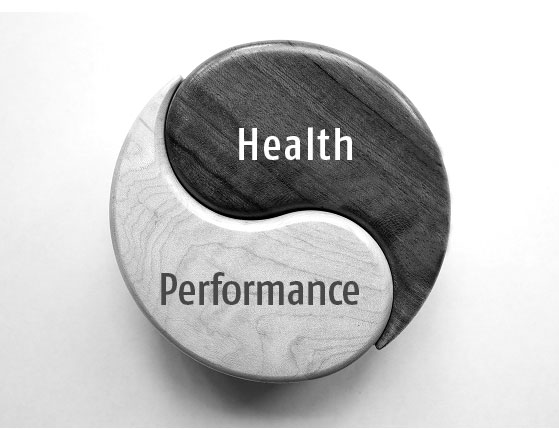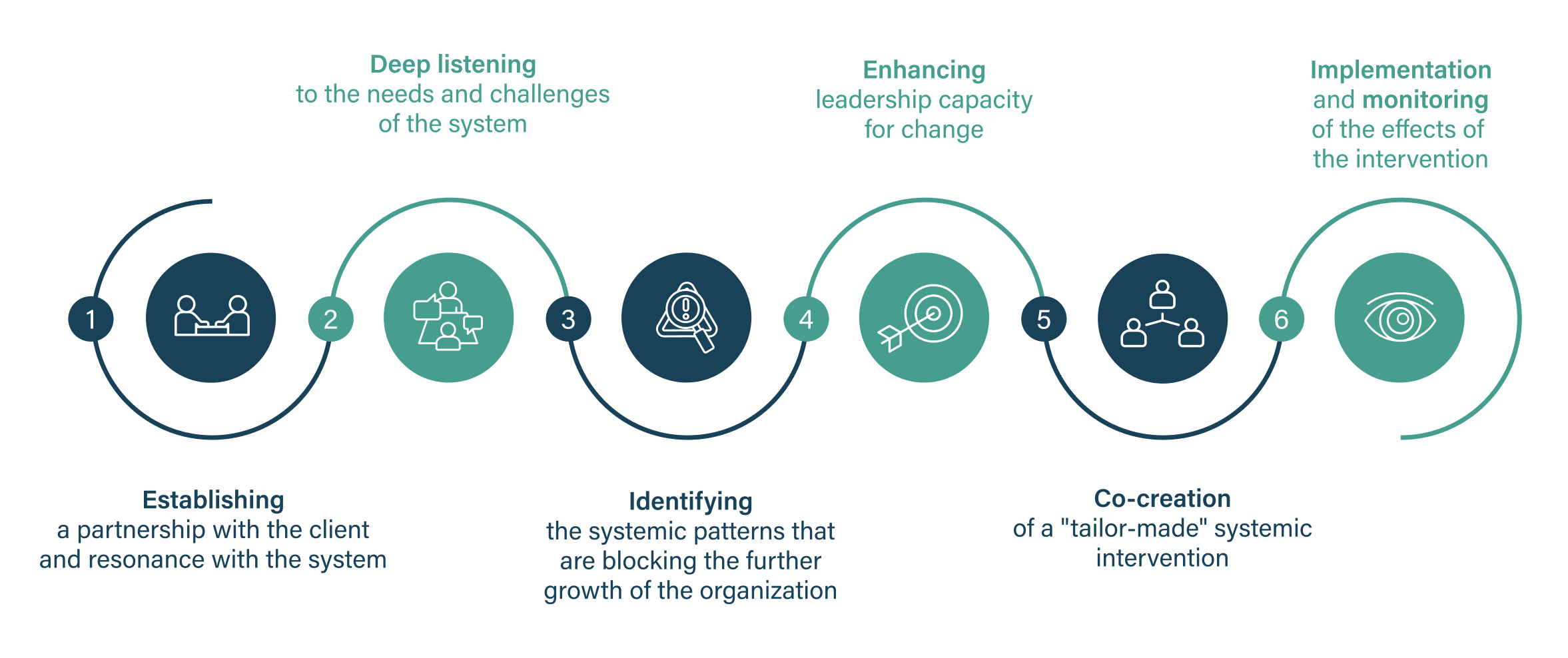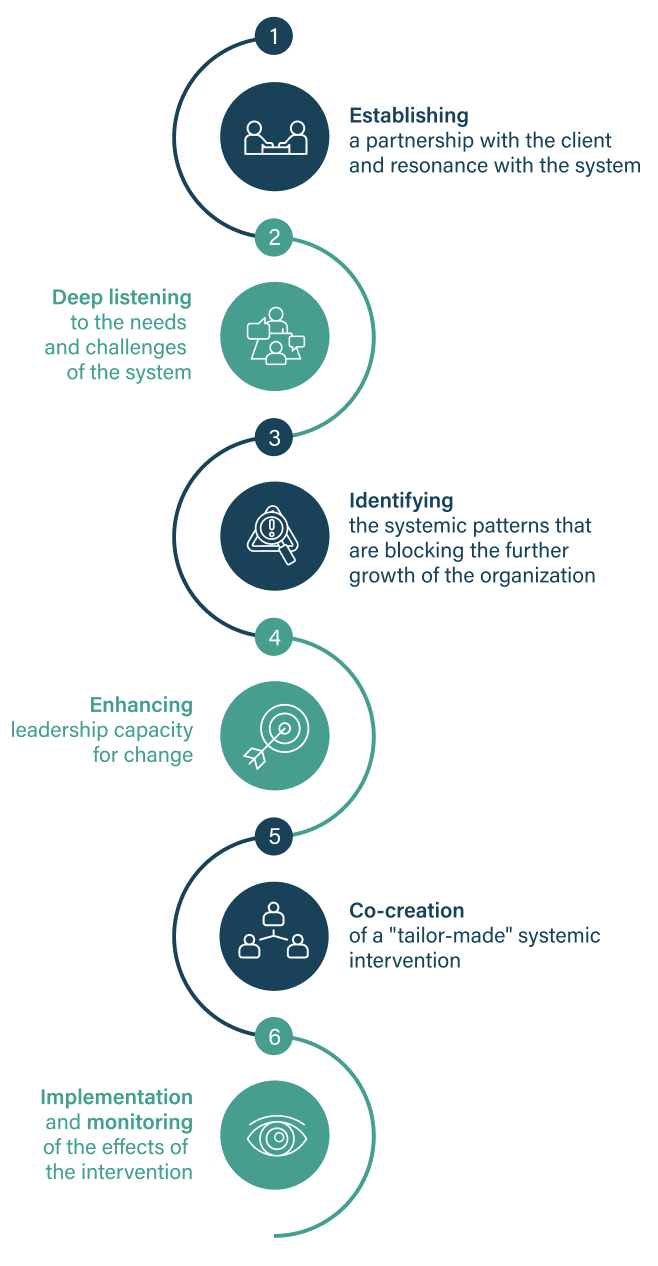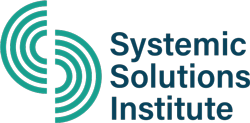About the Systemic Solutions Institute
Systemic Solutions Institute has been pioneering and promoting systemic work with leaders and organisations since 2019.
In its work, the Institute has experience in working with various types of organisational systems, including multinational companies, family businesses, international organisations, start-ups, civil society organisations and public administration organisations.
In March 2025, the Institute published the very first book on systemic work with organisations in Southeast Europe.

Developing organisations and leaders
The institute empowers leaders to overcome systemic organisational challenges and successfully lead systemic changes in their organisations.
When applied skilfully, the systemic approach creates conditions for long-lasting and sustainable organisational changes, resulting in improved organisational performance, as well as enhanced organisational health.
Since it is impossible to create a sustainable change in an organisation if leaders are not ready to change, an integral part of the systemic change process is leadership transformation and development of leaders’ systemic intelligence.
When to use the systemic approach
The application of the systemic approach to is especially useful and successful in the following situations:
- Change in organisational culture
- Mergers and acquisitions
- Reorganisation and restructuring of the system
- Entering the process of an organisational transformation
- Adopting new strategic directions
- Capacity building and alignment within the leadership team
- Overcoming blocking patterns in the organisational functioning
- Change of generations within family businesses
In our work, we approach each organisation with particular sensitivity and deep respect for its history, while supporting the leaders to develop more effective and supportive ways of organisational functioning in line with the organisation’s potential.

How we work with our clients
In our work with clients, we typically go through these stages:


